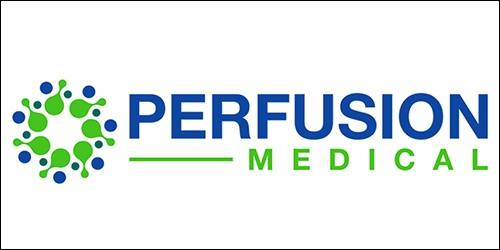08 Sep Perfusion Medical: Re-Establishing Blood Flow in Urgent Settings
Perfusion Medical is an emerging biopharmaceutical company developing life-saving, acute cardiovascular therapies to transform the treatment of acute kidney injury (AKI) and hemorrhagic shock—two high-value, underserved indications with limited innovation. Bench2Bedside spoke with Gerard Eldering, CEO of Perfusion Medical, which is working to save lives by re-opening capillaries with plans to initiate clinical trials in hemorrhagic shock and acute kidney injury (AKI).
Bench2Bedside:
What is Perfusion Medical’s core mission?
Gerard Eldering:
Perfusion Medical is focused on creating innovative solutions, specifically targeting life-saving, acute cardiovascular therapies to transform intensive care medicine. Our lead technology, PM-208, is designed to treat severe hemorrhagic shock by increasing tissue perfusion and facilitating rapid transfer of oxygen into oxygen-starved tissues and organs. This technology has incredible potential to save lives and improve patient outcomes by helping to protect vital organs. Perfusion is pursuing PM-208 as a treatment for hemorrhagic shock, and we also believe that PM-208 has strong potential for patients experiencing AKI, so we are working towards clinical trials in that indication on a parallel track.
Bench2Bedside:
Tell us about the mechanism behind PM-208 – how does it address the no-reflow phenomenon?
Gerard Eldering:
A significant challenge when a patient loses a lot of blood, like after a car accident or on the battlefield, is restoring blood flow. If these patients don’t receive blood quickly the cells in the body swell due to lack of oxygen, compress the capillaries preventing effective blood flow, in what’s known as the “no re-flow phenomenon”. As a result, patients remain at risk of organ failure and death.
PM-208 is designed to treat ischemic reflow or “no reflow” by removing excess water from cells that become swollen and compress surrounding capillaries during a severe blood loss event. PM-208 works to reverse this. By drawing out excess cellular water from the tissue and cells, PM-208 alleviates pressure on the capillary microvasculature, which allows the capillaries to reopen, enabling normal levels of blood flow to return.
Doing so, PM-208, which is comprised of a novel PEG (Poly Ethylene Glycol) formulation of specific molecular weights, offers the potential to minimize tissue damage and organ failure associated with hemorrhagic shock, cardiogenic shock, and AKI, which are key contributors to patient morbidity and mortality.
PM-208 is designed to work rapidly, and preclinical data suggest that it has the potential to improve survival outcomes, accelerate patient recovery, and reduce long-term comorbidities in conditions such as hemorrhagic shock, cardiogenic shock, and acute kidney injury.
Bench2Bedside:
Tell us about the support you’ve received from the military.
Gerard Eldering:
Sure, we clearly think that PM-208 has enormous potential to treat patients in the hospital setting, such as in the ER, intensive care, as well as potentially pre- and post-operation. But there’s also a clear need for improved treatments for shock caused by blood loss on the battlefield. U.S. armed forces have a keen interest in treating hemorrhagic shock on the battlefield, and PM-208 is expected to have profound beneficial effects for far-forward resuscitative efforts in a prolonged field care scenario, including mass-casualty scenarios where blood supply is limited.
Stepping back to see the attention being paid to this problem, the US military has invested more than $294 million over the past two decades to improve treatment of hemorrhagic shock. And so, the military has been a close partner from the inception of PM-208. The development of PM-208 at Virginia Commonwealth University was funded with more than $12 million from the U.S. Army. In addition to investor capital, Perfusion has also secured funding and support for drug development for hemorrhagic shock from the Defense Health Agency (DHA), U.S. Air Force (AFWERX), and the National Institutes of Health (NIH).

CEO: Gerard Eldering
Headquarters: Reston, VA
Lead Product and Status: PM-208 IV solution
- U.S. Air Force-funded phase 1 clinical trial in hemorrhagic shock to begin in the first quarter of 2026
- Plans to follow parallel track and initiate Phase 2 clinical trial in acute kidney injury following major surgery or heart failure
Technology: PM-208, is designed to rapidly restore microvascular perfusion, resolving ischemia and protecting vital organs.



